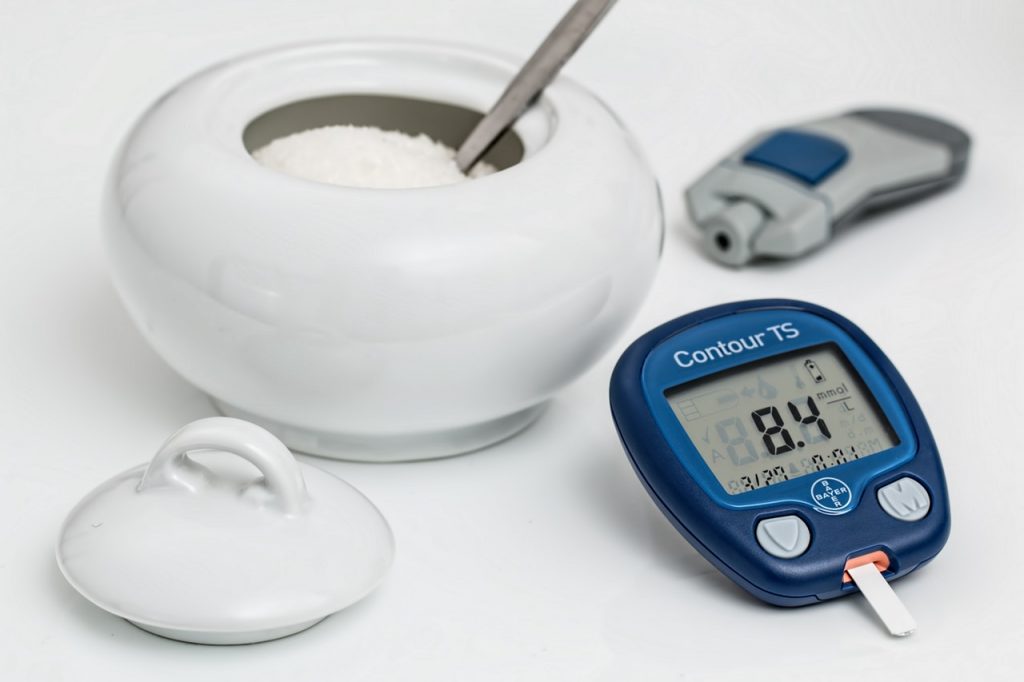2 Major Diabetes Perpetrators That Are Rarely Acknowledged
When you hear the word diabetes, dietary sugar is probably the first association that comes to mind. Although too much sugar and refined carbohydrates (which are quickly broken down into sugar in the body), do contribute to metabolic syndrome, blood sugar fluctuation and diabetes symptoms; dairy and fat are actually more harmful than sugar. Before explaining further, it is important to first understand the difference between type-1 and type-2 diabetes, and metabolic syndrome.
Type-1 Diabetes Versus Type-2 Diabetes and Metabolic Syndrome
 Type 1 diabetes (formerly referred to as juvenile diabetes), occurs when a person’s pancreas produces little-to-no insulin (which is the hormone that regulates blood sugar levels). Type-1 diabetes accounts for approximately 10 of diabetes cases and it usually develops in childhood or adolescence. Type-2 diabetes, which is also known as adult-onset diabetes, occurs when the pancreas produces insulin, but the body can’t properly utilize the insulin that is released – a condition known as insulin insensitivity. Type-2 diabetes accounts for of diabetes cases; it usually develops in adulthood and it’s primarily caused by lifestyle factors. Metabolic syndrome is a collection of conditions — high blood pressure and cholesterol; high blood sugar, and excess body fat (especially around the waist) — that occur together. Metabolic syndrome is also caused by lifestyle factors, and it vastly increases your risk for diabetes, heart disease and stroke. While Type-1 diabetes is considered irreversible, the majority of type-2 diabetes and metabolic syndrome cases can be reversed through simple lifestyle modifications.
Type 1 diabetes (formerly referred to as juvenile diabetes), occurs when a person’s pancreas produces little-to-no insulin (which is the hormone that regulates blood sugar levels). Type-1 diabetes accounts for approximately 10 of diabetes cases and it usually develops in childhood or adolescence. Type-2 diabetes, which is also known as adult-onset diabetes, occurs when the pancreas produces insulin, but the body can’t properly utilize the insulin that is released – a condition known as insulin insensitivity. Type-2 diabetes accounts for of diabetes cases; it usually develops in adulthood and it’s primarily caused by lifestyle factors. Metabolic syndrome is a collection of conditions — high blood pressure and cholesterol; high blood sugar, and excess body fat (especially around the waist) — that occur together. Metabolic syndrome is also caused by lifestyle factors, and it vastly increases your risk for diabetes, heart disease and stroke. While Type-1 diabetes is considered irreversible, the majority of type-2 diabetes and metabolic syndrome cases can be reversed through simple lifestyle modifications.
The Type-1 Diabetes/Dairy Connection
The exact cause of type-1 diabetes remains unknown; however, it is linked to an autoimmune reaction of the immune system. Something sets off the immune system and causes it to turn against itself—mistakenly attacking and killing the beta cells of the pancreas. This causes the insulin secreting cells in the pancreas to be lost, and triggers the onset of type-1 diabetes. Once this occurs, type-1 diabetics will require insulin treatment for the duration of their lives.
What triggers the immune system to attack pancreatic cells, is a question that remains highly debated. According to renowned physicians, Dr. Neil Bernard and Dr. John MacDougall, there are likely multiple potential triggers, and one of them is the introduction of cow’s milk too soon in infantry. In the first few months of an infant’s life, the gut lining is highly permeable, which is essential so that beneficial proteins in a mother’s breast milk can pass through into the bloodstream, and promote immunity from disease.
If an infant is given dairy too soon, a highly allergenic, inflammation-causing-protein-fragment in milk called casomorphin, will pass through the permeable gut lining, into the bloodstream. If that infant has a gene that causes them to be sensitive to casomorphin, the immune system will mistakenly identify the cow-milk protein as an invader and it will launch an attack. Unfortunately, in the process, the immune system may also mistake the beta cells in the pancreas as harmful invaders and attack those beta cells, which causes the pancreas to lose its ability to create insulin. Even when cows milk is introduced later on in infanthood, when the gut wall should technically be sealed and able to prevent the passage of cow-milk proteins into the bloodstream, there is still a chance that the milk may trigger type-1 diabetes. The reason for this is that viruses can trigger gut permeability and cause small holes in the gut lining at any point in life. And whenever the gut is permeable, the risk for a diabetes-causing-immune-reaction caused by milk remains.
The Diabetes and Dietary Fat Connection
 Sugar is always demonized for contributing to and worsening diabetes; however, fat (especially saturated fat) is equally, if not more to blame. If a person has high triglycerides in their blood and a lot of free fatty acids floating around, it dulls the insulin signalling mechanism; desensitizing insulin and reducing the ability of insulin to properly enter the cells. Since insulin is required to enter the blood cells in order to control blood sugar levels, fat causes a spike in blood sugar levels, increasing diabetes symptoms.
Sugar is always demonized for contributing to and worsening diabetes; however, fat (especially saturated fat) is equally, if not more to blame. If a person has high triglycerides in their blood and a lot of free fatty acids floating around, it dulls the insulin signalling mechanism; desensitizing insulin and reducing the ability of insulin to properly enter the cells. Since insulin is required to enter the blood cells in order to control blood sugar levels, fat causes a spike in blood sugar levels, increasing diabetes symptoms.
Nathan Pritikin, was a prominent nutritionist and longevity researcher and he was one of the first experts to recognize the fat/diabetes connection. Instead of restricting carbohydrate intake, he cut the fat out of his diabetic patients diets, and this simple step restored insulin sensitivity in his type-2 diabetes and metabolic syndrome patience. Since this early experiment, numerous studies have confirmed the fact that excess saturated fats in the diet (found in beef, pork, dairy, fried food and baked goods), impairs insulin secretion and contributes to the insulin insensitivity that is associated with metabolic syndrome and type-2 diabetes.
***Please help up spread this rarely discussed life-changing information by sharing this article with new mothers and anyone you know who suffers with diabetes.
References
http://www.diabetes.ca/about-diabetes/types-of-diabetes
http://www.mayoclinic.org/diseases-conditions/metabolic-syndrome/home/ovc-20197517
http://diabetes.diabetesjournals
http://www.nealhendrickson.com/mcdougall/020700puthepancreas.htm.org/content/57/10/2555
http://www.ncbi.nlm.nih.gov/pubmed/15297079[/fusion_text][/fullwidth]



